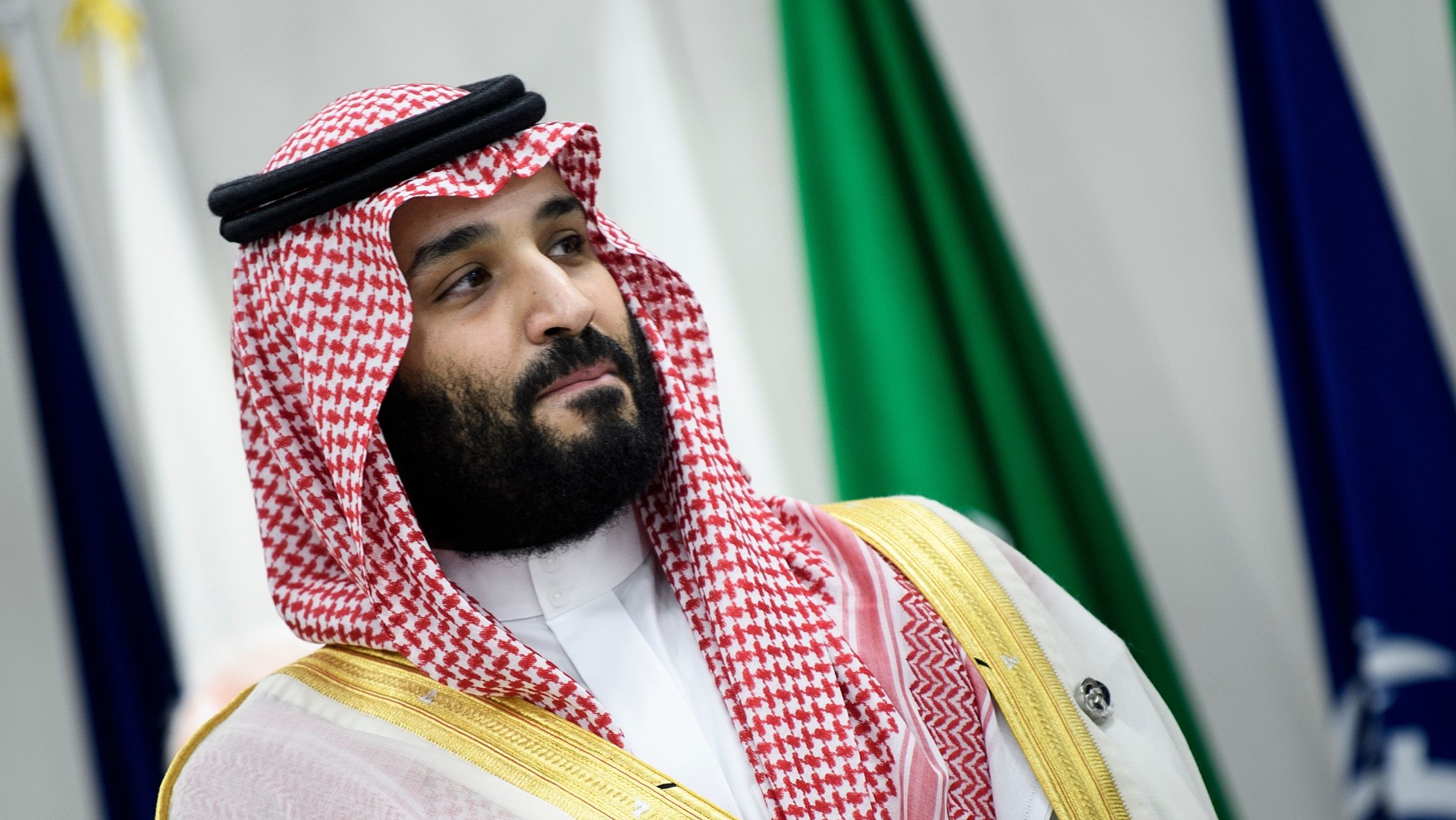Mohammed bin Salman: a ruthless reformer
De facto leader of Saudi Arabia is rehabilitating his image after years as international ‘pariah’

A free daily email with the biggest news stories of the day – and the best features from TheWeek.com
You are now subscribed
Your newsletter sign-up was successful
Mohammed bin Salman is reclaiming his central role on the world stage after four years in the diplomatic wilderness following the murder of dissident journalist Jamal Khashoggi.
US intelligence agencies and a UN inquiry concluded that Saudi Arabia’s de facto ruler was ultimately responsible for the extrajudicial killing – a verdict that badly damaged his reputation as a reformer in the deeply conservative Middle Eastern country.
But bin Salman, commonly known as MBS, received the ultimate endorsement last month in the form of a visit from US President Joe Biden. And during a subsequent trip to Europe, the crown prince was welcomed by heads of state including France’s Emmanuel Macron and Turkey’s Recep Tayyip Erdoğan.
The Week
Escape your echo chamber. Get the facts behind the news, plus analysis from multiple perspectives.

Sign up for The Week's Free Newsletters
From our morning news briefing to a weekly Good News Newsletter, get the best of The Week delivered directly to your inbox.
From our morning news briefing to a weekly Good News Newsletter, get the best of The Week delivered directly to your inbox.
How did MBS come to power?
MBS was born on 31 August 1985, the eldest son of then prince Salman bin Abdulaziz Al Saud and his third wife, Fahda bint Falah Al Hithlain. After graduating in law from King Saud University in Riyadh, MBS began his meteoric rise to power when his father ascended to the throne in 2015.
The new king immediately appointed his eldest son as defence minister, a role that MBS still holds. As defence chief, MBS spearheaded Operation Decisive Storm, a Saudi-led coalition in Yemen against Houthi rebels. He also began “driving a far more aggressive foreign policy to counter the influence of regional rival Iran”, reported Al Jazeera.
MBS shot to international attention in 2017, when he was named crown prince and deputy prime minister, outmanoeuvring his more experienced cousin Mohammed bin Nayef to become heir apparent.
The crown prince “subsequently sought to consolidate his power, launching a crackdown against perceived opponents”, said the BBC. More than 20 influential clerics and intellectuals were detained for allegedly acting on behalf of “foreign parties against the security of the kingdom”.
A free daily email with the biggest news stories of the day – and the best features from TheWeek.com
MBS then further tightened his grip on power by launching a purge of the kingdom's political and business leadership. The broadcaster’s security correspondent Frank Gardner said the “bold, pre-planned” move “removed the final obstacles to his gaining total control over the world’s richest oil producer and home to the holiest shrines in Islam”.
Liberalising reformer or ‘psychopathic killer’?
MBS is “both a liberalising reformer and a fearsome consolidator of power”, said The Economist.
He has overseen the rollout of a series of socio-economic reforms including lifting a 35-year ban on cinemas and allowing women to drive. His domestic agenda has also focused on implementing his so-called Vision 2030, aimed at diversifying the Saudi economy to become less reliant on oil while turning the kingdom into an investment powerhouse.
Former CIA acting director Michael Morell told CBS News last month that the 70% of the Saudi population aged under 30 were “very happy” with their de facto leader. But MBS “is not popular with the old guard, with the royal family, because he changed the system”, Morell said.
The crown prince has also faced widespread criticism further afield. His war in Yemen has resulted in the deaths of tens of thousands of civilians. And he has cracked down on women’s rights activists, and detained hundreds of potential political rivals under the pretext of countering corruption.
Former top Saudi intelligence official Saad Aljabri told CBS News that MBS was a “psychopath”. The crown prince was a “killer” with “infinite resources” who posed a “threat to his people, to the Americans and to the planet”, Aljabri said.
Why are Western leaders courting him?
MBS “has been a pariah in the West” since the killing of Khashoggi by Saudi agents in the kingdom’s Istanbul consulate in October 2018, said euronews.
Despite the conclusions of the US intelligence agencies, the prince has always denied approving the killing, instead blaming “rogue” Saudi agents.
And as Russia’s invasion of Ukraine sends world energy prices soaring, he now appears to have found a route back to favour in the West.
His recent courting by world leaders “signals a remarkable return to the global stage for the kingdom’s de-facto ruler”, said The Guardian. The Ukraine war and energy crisis “have drastically changed leaders’ priorities when dealing with the oil-rich nation, and the young crown prince who leads it”.